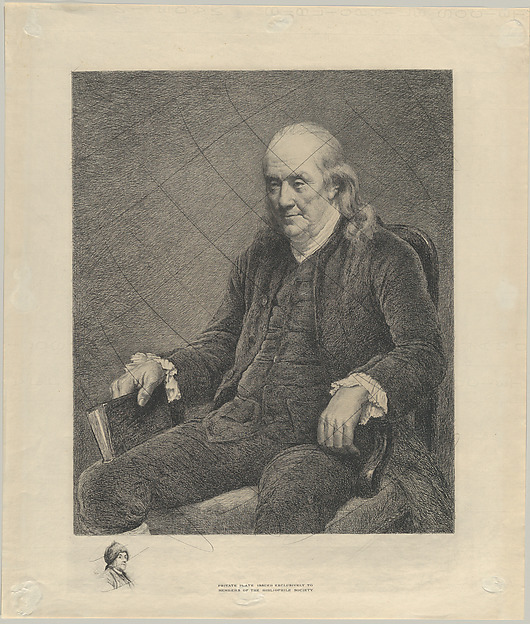Thomas Jefferson
Thomas Jefferson will continue to be remembered in history for his lasting impact on the foundation of American government. Jefferson’s ability for reasoning and enlightened thinking were qualities that drove him to write the Declaration of Independence and become the third president of the United States. Although Jefferson is often viewed as an early champion for American equality and freedom, Jefferson was also a known slave owner. Jefferson did not extend his vision of a liberated America to those of African descent, dirtying his legacy as a promoter of liberty.
Jefferson’s views on African Americans and slavery appeared in the fourteenth chapter of Jefferson’s only book, Notes on the State of Virginia. In this chapter, Jefferson writes about the inferiority of blacks to whites. Here he claims that African Americans are inferior in both beauty and reasoning intelligence. Jefferson uses the pseudoscience of Eugenics to make false claims about the African American race. He uses his book to promote his views of African Americans as a simple, sub-human race with animalistic tendencies. Jefferson employed an ethnological approach to writing about African Americans to damage their humanity among his white readers.
Although Jefferson viewed blacks as inferior, he did recognize the dangers of slavery. Calling it unsustainable, Jefferson understood that the institution of slavery was dangerous for both black and white Americans. However, Jefferson refused to speak in favor of abolition. Fearing the extermination of whites through cross-race breeding, Jefferson looked at slavery as a form of racial preservation. This view seemed hypocritical considering his actions, as Jefferson is believed to have produced many children with one of his slaves, Sally Hemmings. Jefferson’s view of slavery is a reactionary one. While recognizing that slavery was becoming less acceptable and was damaging to both races, Jefferson still chose to benefit from and defend slavery as an institution that protected the status quo.
Slavery and race were not the only topics written about in Jefferson’s Notes on the State of Virginia. Jefferson focused his book on establishing Virginia as the model American state. He cited Virginia’s economy, laws, landscape and education as the basis for the state’s success. Jefferson also uses his book to write about the need for both the separation of church and state and checks and balances. These points were much less controversial then his views on race, leading most responses to his work to be focused on his defense of slavery.
Works Cited
Jefferson, Thomas. “Notes on the State of Virginia, Query VI.” The Norton Anthology of American Literature.. Gen. ed. Nina Baym. 8th ed. Vol. A. New York: Norton, 2012. 449-50. Print.
Benjamin Franklin and de Crevecouer

The era that de Crevecouer and Benjamin Franklin were writing Letters from an American Farmer and Poor Richard’s Almanac was during the time of Enlightenment. This is a period when discussions on religion were fading from everyday life to a focus on reason. This era was full of philosophical thought to have reasoning dictate why humans are superior to beasts, the ability to be moral without a religion requiring it. This period was also when Americans were trying to understand their culture in this new world, where they didn’t need to be a country that was representative of European countries, but could be their own new place. This necessity for a new American identity was caused by the American Revolution. This context illustrates the purpose behind Franklin and de Crevecouer’s writings, the necessity of forming a new identity as a country.
Benjamin Franklin’s Poor Richard’s Almanac was written under the pseudonym Richard Saunders starting in 1733 (Franklin 456). The almanac is famous for its many axioms about wealth and life that are easy to remember and helped define the hard work ethic of many Americans at the time. Specifically, the prologue to Poor Richard Improved is entitled “The Way to Wealth,” a topic that is especially interesting to the new Americans who no longer have to share the majority of their output with a ruling aristocracy. With their new-found freedom, the Americans would especially appreciate the idea of frugality and hard work as a way to wealth, as that particular idea was not common in Europe where leisure was envied.
De Crevecouer’s Letters from an American Farmer was written in London to explain the ideology of the new American. This appealed to the Europeans very much, the idea that the colonists didn’t want to form new colonies but rather a new country. In his work, de Crevecouer created the term “Ubi panis ibi patria” as the motto for the emigrants of America. This term means “Where there is bread, there is one’s Fatherland” (de Crevecouer 607). It plays into the idea of the colonists being proud of hard work and how their own hard work is equally and equitably paid out to them without a master class taking an undeserved portion.
Franklin and de Crevecouer both illustrate this notion of hard work being something to strive for, not something to be ashamed of. It becomes a sort of calling card of pride to the new Americans, as it allows everyone of different backgrounds to melt together. By being united by the love of hard work and frugality, their backgrounds are no longer relevant. They have the innovative spirit that is needed to create a new country, and American innovation cannot come without hard work. Franklin and de Crevecouer recognize this and are attempting to show the world why America is special to them, albeit in different ways. They have pride in the new America and want to show how Americans are reacting to the Enlightenment period through their relaxation of religious requirements and observation of a hard work ethic.
